
Are ghosts, then, terrifying because they rage ? I was walking in town conservation land that had once been the grounds of a state mental hospital. It was cold, bright, and windy. The sound of construction -- asylum being decommisioned to condominiums -- followed me through the woods. There would be ghosts here, then. Plenty of them.

Suddenly two large, blond dogs of some trendy, weaponizable breed loped out of the woods, barking. I stopped and tried to remember what stance humans are supposed to take to mollify canines. Eye contact ? No eye contact ? Motion ? Stillness ? They circled, barking excitedly. I hoped blue jeans and long underwear would withstand fang, at least partially. I could hear their owner's voice ordering them off. A blond woman with a ponytail appeared, and jogged past, shrieking at the dogs to follow her. They, reluctant as any bully, finally left. Angry ghosts. Terrifying.

I continued my walk. The paths were wide -- they were carriage paths, in fact -- and wonderful, untrammeled stands of weeds grew on either side. When the wind stopped, I could feel a vague warmth from the sun. When it blew, my cheeks burned with it. My hands were cold, even double gloved and in my pockets. I ungloved the right hand and blew on it. My breath. A benevolent ghost.

Winter is all about death, and we've come deep enough into winter -- way beyond the colorful distractions and processions of fall -- to be confronted with it in all its starkness. Bare branch, stripped stem, dessication, disintegration. Form yielding to formlessness. RGB yielding to grayscale. Or, more aptly, brownscale. Sepia. The perfect color -- the color of old photos -- for ghosts.
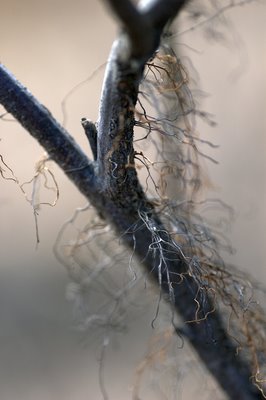
But I was walking in the material world, the world of wind, of rock and wood, of light and of ice. Air, earth, fire and water. Light's the most ghostlike of the elements, even more so than wind. I was trapping ghosts in a black box called Nikon which in Greek means "victory." And in Japanese ? Perhaps something less triumphalist, more reverential ?
My photographs are deathmasks. Of faces sunk in hardening light.

I walked and walked. There was, I knew, an old graveyard in these woods, for inmates of the old asylum. I remembered the state prison graveyard, whose handwritten death ledger someone showed me once. "Inmates," read the simple handwritten instruction, "shall be buried with their feet toward the road." Symbolism ? Or simply the gravekeeper's obsessive-compulsiveness ?

I headed off the main road down a small path. When I returned, I saw a man -- tall, thin, bearded, dressed in multiple untucked layers of mismatched clothes. He carried three or four bulging bags, and wore large glasses with brown plastic rims. One glass was cracked, stellate, as if it had deflected something sharp.
"Hello," he said, nervous, grave, quickening his pace, disappearing around the bend.
"Hello," I replied to thin air.
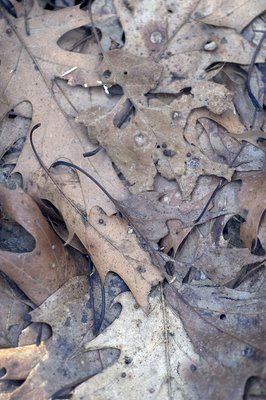
Soon I found the graveyard. It was neatly tended and roped off with blaze-orange plastic fencing. The headstones -- little more than dirty stubs -- jutted in irregular rows from the brown lawn. There were bare patches in the grass as if there had been fresh burials, or maybe a reshuffling of the graves. One stone was larger than the others and close enough to the road to read. Cilia Q.. I scanned her dates: 1952-1973. We were born in the same year. She died, and I graduated from college. I stared at the air above her grave. Nothing wavered. Even the wind was still.

My head is full of ghosts. Different things call them forth. The sound of spring peepers always summons M., dead in his 20's a few springs ago. He'll never hear these again I thought, then. So now, each year, I hear him in their songs.
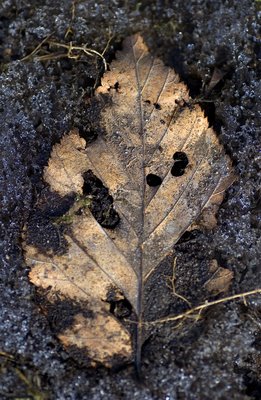
What isn't ghostly, though ? My world -- every sight, sound, touch, smell, thought, mood, desire -- is a bright epiphenomenon of neuronal flux and flow, of cations passing to and fro across membranes, ramifying more intricately than any winter roadside weft of vine and branch. Is that the wind that chills my ungloved had as I crouch to photograph some ice, or did my hand accidentally tresspass on a ghost ? Cilia, is that you ? Are you there, M. ? And what about the Trinity -- was there something quantum mechanical about its three-personed perichoretic dance ?
This winter I have become porous. My bones and hair thin, my skin flakes, my neck and knees creak like an old tree. At times I feel the spirit of God pouring through me like wind through branches, like light through stained glass.
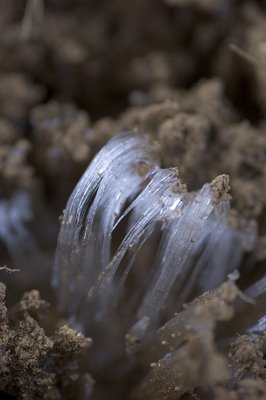
It is ice that claims the winter for the inorganic. It reminds me that I am carbon-based, reducible to a few cents worth of chemicals. And the ghosts that inhabit me ? They are volatile; they sublime.

Ice may parody the organic impulse of stems and veins, but it is crystalline, a lattice, the dogmatic antithesis of living water.
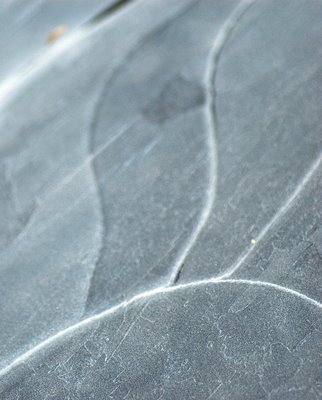
It excludes us,
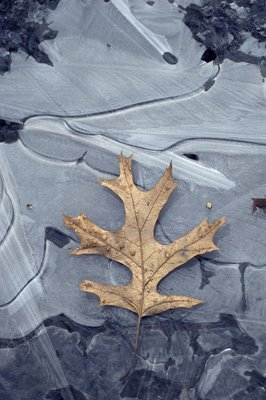
it imprisons us,
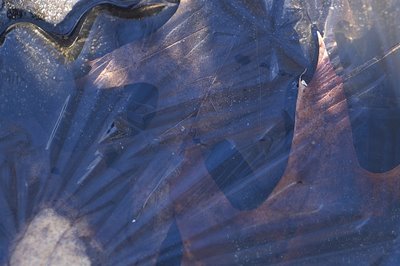
and it will not negotiate.
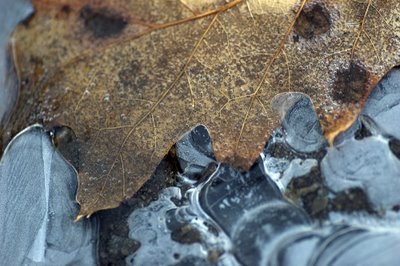
A few hours after my walk I learned that another M. had just died. An M. equally young, a death equally sudden and senseless. "No !" I cried. "No !" How could it be ? It was impossible, impossible. I pictured M., polite and cheerful, standing at our back door. I reached toward the evanescing image, toward the receding ghost.
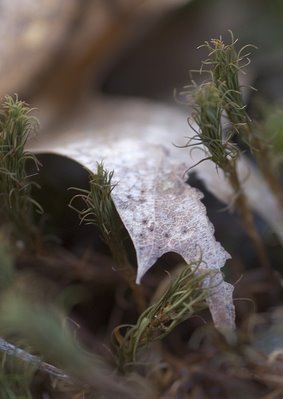
Fresh ghosts aren't cold. They rake red hot claws over our throats and chests and eyes. Picture my death, they rage, goading us toward the most vivid fantasies of their harrowed, lonely last moments. We cling to one another, trying to fortify ourselves with substance, feeling all too easily the bones beneath each others' flesh. Bird bones. Bones of air and light.
And, later, when we are able, we, like the Psalmist, ask --

Where can I go then from your Spirit?
where can I flee from your presence?
If I climb up to heaven, you are there;
if I make the grave my bed, you are there also.
If I take the wings of the morning
and dwell in the uttermost parts of the sea,
Even there your hand will lead me
and your right hand hold me fast.
If I say, "Surely the darkness will cover me,
and the light around me turn to night,"
Darkness is not dark to you;
the night is as bright as the day;
darkness and light to you are both alike.
No comments:
Post a Comment